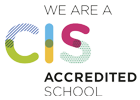It is a commonplace to say that the world has experienced a digital revolution and that we are now part of a global information economy. The extent and impact of the changes signalled by such grand phrases vary greatly in different parts of the world, but their implications for knowledge are profound.
Reflection on such huge cultural shifts is one part of what the TOK course is about. Its context is a world immeasurably different from that inhabited by “renaissance man”. Knowledge may indeed be said to have exploded: it has not only expanded massively but also become increasingly specialized, or fragmented. At the same time, discoveries in the 20th century (quantum mechanics, chaos theory) have demonstrated that there are things that it is impossible for us to know or predict.
The TOK course, a flagship element in the Diploma Programme, encourages critical thinking about knowledge itself, to try to help young people make sense of what they encounter. Its core content is questions like these: What counts as knowledge? How does it grow? What are its limits? Who owns knowledge? What is the value of knowledge? What are the implications of having, or not having, knowledge?
What makes TOK unique, and distinctively different from standard academic disciplines, is its process. At the centre of the course is the student as knower. Students entering the Diploma Programme typically have 16 years of life experience and more than 10 years of formal education behind them. They have accumulated a vast amount of knowledge, beliefs and opinions from academic disciplines and their lives outside the classroom. In TOK they have the opportunity to step back from this relentless acquisition of new knowledge, in order to consider knowledge issues. These include the questions already mentioned, viewed from the perspective of the student, but often begin from more basic ones, like: What do I claim to know [about X]? Am I justified in doing so [how?]? Such questions may initially seem abstract or theoretical, but TOK teachers bring them into closer focus by taking into account their students’ interests, circumstances and outlooks in planning the course.
TOK activities and discussions aim to help students discover and express their views on knowledge issues. The course encourages students to share ideas with others and to listen to and learn from what others think. In this process students’ thinking and their understanding of knowledge as a human construction are shaped, enriched and deepened. Connections may be made between knowledge encountered in different Diploma Programme subjects, in CAS experience or in extended essay research; distinctions between different kinds of knowledge may be clarified.
Because the subject matter of the course is defined in terms of knowledge issues, there is no end to the valid questions that may arise in a TOK course. This guide consists mainly of questions that have been found to stimulate appropriate TOK inquiry. It would not be possible or desirable to include them all in a course of 100 hours spread over the two years of the Diploma Programme, though it is expected that all sections of the guide will be covered to some extent.


